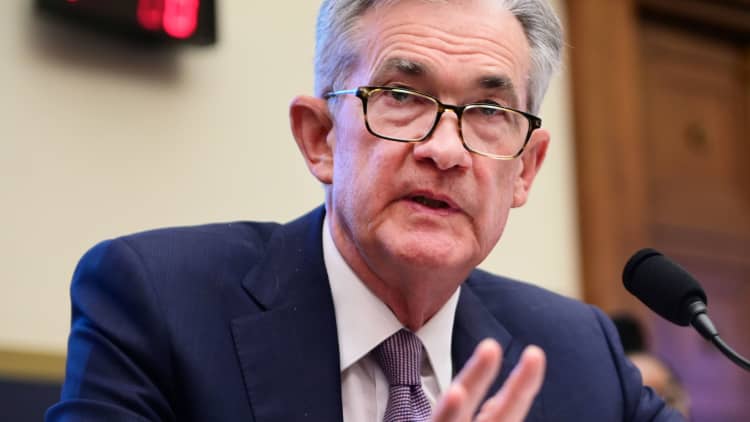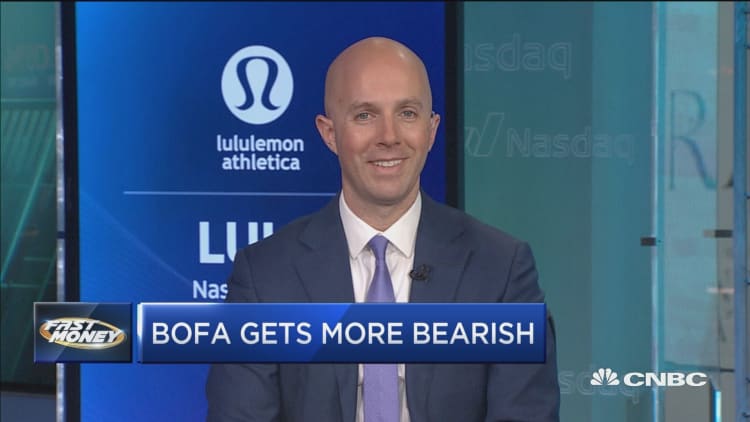
The Federal Reserve is unlikely to adjust interest rates anytime soon so long as the economy remains on its present path, central bank Chairman Jerome Powell told Congress on Wednesday.
In commentary he provided to the Joint Economic Committee, Powell reiterated a stance he outlined a few weeks ago that the Fed's moves this year toward more accommodative monetary policy have helped support an economy that continues to grow. He noted that Fed moves tend to have a lagged effect, meaning that it will take time to assess what impact they are having.
"We see the current stance of monetary policy as likely to remain appropriate as long as incoming information about the economy remains broadly consistent with our outlook of moderate economic growth, a strong labor market, and inflation near our symmetric 2 percent objective," he said in prepared remarks.

The Fed has cut its benchmark rate three times this year to its current target range of 1.5% to 1.75%. While the fed funds rate specifically sets the rate banks charge each other for very short-term lending, it also is tied to multiple forms of consumer debt.
Following the Federal Open Market Committee meeting late last month, Powell said he sees the economy as "being in a good place" and unlikely to need more stimulus if the data stays consistent.
"Looking ahead, my colleagues and I see a sustained expansion of economic activity, a strong labor market, and inflation near our symmetric 2 percent objective as most likely," he said in his remarks Wednesday. "This favorable baseline partly reflects the policy adjustments that we have made to provide support for the economy."
Inflation warnings
As he has multiple times before, Powell cautioned that challenges remain, such as weakness abroad, trade tensions and low inflation.
Several officials recently have placed particular emphasis on inflation that remains below the Fed's 2% target. Minneapolis Fed President Neel Kashkari, for instance, has said the Fed should state publicly that it won't raise until inflation is firmly at the target. Chicago's Charles Evans went even further, saying the Fed should articulate that it would be OK if the level ran a little hotter than 2%. Both officials made the remarks in CNBC interviews.
For his part, Powell also has said that inflation would have to rise substantially before he would consider a rate hike. He said Wednesday that policymakers will continue to assess what needs to be done.
Powell said the labor market remains strong, incomes are rising and consumer confidence continues to grow.
"We will be monitoring the effects of our policy actions, along with other information bearing on the outlook, as we assess the appropriate path of the target range for the federal funds rate," he said. "Of course, if developments emerge that cause a material reassessment of our outlook, we would respond accordingly. Policy is not on a preset course."
On other topics, Powell addressed the mid-September flare-up in the repo market, where banks go to exchange ultra-safe assets for reserves. The Fed responded to a cash crunch by opening up a series of temporary and longer-term market operations that have pumped billions into the system.
Powell called the operations "technical measures" that do not reflect a change in monetary policy, though the moves have led to a $270 billion expansion in the Fed balance sheet.
He also repeated that fiscal policy is on an unsustainable path and could limit the ability to respond to an economic downturn.



